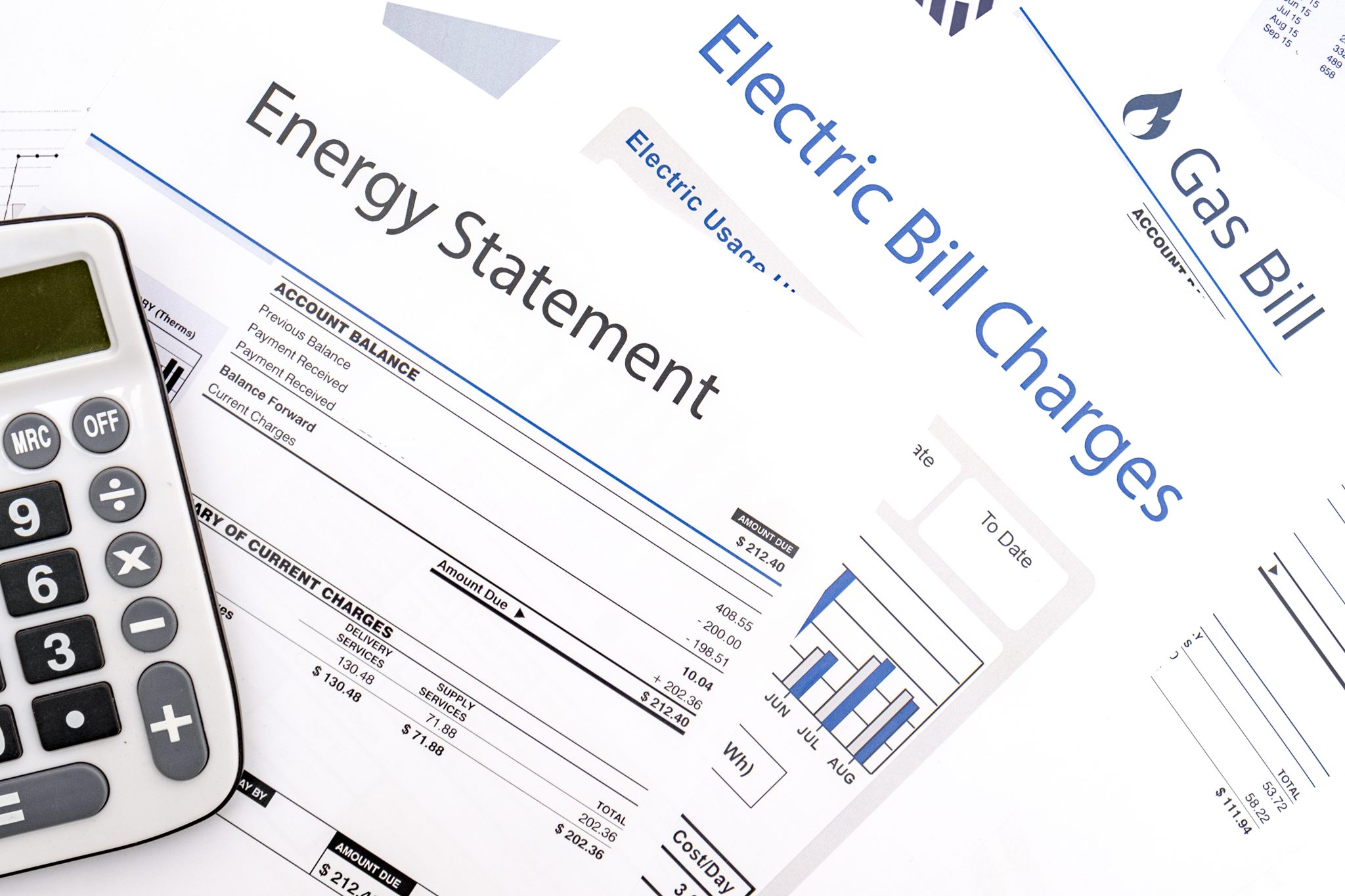Finance & Career

Many individuals and families seek ways to save money for various reasons. These include establishing an emergency fund, reducing energy costs, purchasing a home, or planning for retirement. The increased cost of living expenses today means individuals and families are having to pay more out of pocket for energy services.
Introduction
How much do you spend on energy each year? This is probably something that many people never think about. A vast amount of an individual’s income could be contributed to energy and water bills if they are not practicing energy and water conservation. Energy conservation is the practice of using less energy to lower costs and reduce the environmental impact. Water conservation is the preservation, control, and management of water resources. Using energy and water more proficiently or reducing the amount consumed can contribute to conservation. However, it is difficult for individuals to recognize any savings because of the amount of money spent on various utilities such as electricity, water, fuel, and natural gas. This document offers ways to save money by taking simple steps to reduce utility costs.
Steps to Save
Many Alabama residents may be looking for ways to save money by conserving energy or water. With limited energy and water resources available in the world, conserving resources when possible is beneficial to individuals and the environment. A great way to save on energy and water costs is by identifying consumption habits that can be changed. The ideal starting point is to make simple home improvements that reduce higher consumption.
Protecting the environment is a huge task that we all share. However, conserving energy and water to save on utility bills and improve your budget is equally important. Here are some common ways to reduce consumption in your home to save money.
- Purchase items that have an ENERGY STAR logo. This includes, but is not limited to, washers, dryers, water heaters, or light bulbs. The ENERGY STAR logo is an indication that a product is 10 to 50 percent more energy efficient than products that have no ENERGY STAR rating.
- Consider asking the electric company to do a free energy audit. The purpose of the audit is to identify and show you where air or heat is leaking in your home. Eliminating air leaks should immediately decrease your utility bill.
- Turn off lights when leaving a room to help reduce the utility bill. Burning lights unnecessarily can contribute to using more energy. High energy usage increases energy costs. In most cases, lighting constitutes about 12 percent of a typical residential utility bill.
- Replace your incandescent or fluorescent lightbulbs with light-emitting diode (LED) lightbulbs. They may cost a few dollars more, but they have a longer lifespan and are more efficient.
- Wait until you have a full load of clothes before using the washing machine. Each time you use your washer or dryer, there is an energy surge.
- Check the settings before starting the dryer to ensure that you are not using more time than needed to dry clothing.
- Consider allowing small loads of dishes to air dry. Air drying dishes instead of using the dishwasher conserves energy.
- Lower the heat on your thermostat in winter months, and use ceiling fans to help circulate heat quicker. According to ENERGY STAR, setting your thermostat to 68 degrees F when you are home helps with energy efficiency.
- Change heating, ventilation, and air conditioning (HVAC) system air filters every 2 to 3 months. Do not forget to service the unit annually to improve performance.
- To prevent your heating or cooling unit from overworking, dress in cool clothing in the summer and warm clothing in the winter. Consider wearing warm layered clothing or heavy clothing such as jeans, jogging pants, and sweaters when it is cool in the home. Keep warm throw blankets handy for the winter months.
- Alternate window coverings to increase energy efficiency. Heavily insulated draperies will trap the warm heat in the home in the winter months, while uninsulated curtains will allow the home to cool off faster in the summer.
- Shut doors to vacant rooms in the home. The HVAC unit will not run as much to heat or cool the home.
- When weather is moderate, adjust the thermostat so that HVAC powers on only as needed, if at all. If your thermostat is outdated, consider changing it to a programmable thermostat. Programmable units help the HVAC work more efficiently.
- Dial 2-1-1 to get help paying bills, finding food, and locating other resources near you. United Way 2-1-1 Community Connections provides local assistance programs and essential community services to individuals and families. This service can also be accessed by calling or 1-888-421-1266 or visiting the 2-1-1 website to learn about all of the services offered in your area.
Alabama’s energy costs are more expensive than other states.
According to the US Energy Information Administration, “Alabama—State Profile and Energy Estimates,” October 2021, Alabama ranks fourteenth in total energy production (crude oil, natural gas, coal, and electricity), fifth nationally for total electricity consumption per capita, and third per capita for residential sector electricity for heating and air conditioning.
- If you are having a difficult time paying your bills, seek assistance from your electric or gas company when they offer special programs. They might offer you a payment plan, deferment, or other financial arrangements that give you time to catch up on energy or other bills.
- Fix water leaks. This includes running toilets, leaking faucets (inside and outside), and any pipes in the yard. You can also reduce the amount of water used to save money over time.
- Try taking shorter showers and turning off running water while brushing your teeth.
- Consider catching water in a rain barrel. Use this rainwater to water your plants or lawn. It is free water and costs you nothing. Use the water for household chores such as gardening or washing your car.
- Use hot water wisely. Your water heater is the second-largest energy user in your home. Consider insulating it and using hot water efficiently to save energy and money. Lower the thermostat on your water heater to 120 degrees F.
- Turn off the oven a few minutes before cooking time ends. The food will continue to cook without using extra gas or electricity.
- Unplug the microwave, coffee pot, and toaster when not in use. Consider using a power strip for home electronics, such as computers, tablets, TVs, video games, DVD players, and others. Turn the power strips off when the electronics are not in use.
- Add or replace insulation in the attic. Insulation helps create a barrier against weather conditions outside. Over time insulation wears down. Replacing old insulation reduces the load on your HVAC system.
- Adding new storm doors and windows is beneficial. Over time the seals on windows and doors deteriorate, making the home leaky. Replacing windows and doors is especially important for homes that are 30 to 40 years old.
- Use water-saver faucets and shower heads to control water usage and sustain the water pressure. The amount of water saved is determined by the design of the faucet or shower head and the design of the water saver device used.
- Learn to do it yourself (DIY). Search the Internet to learn how to do simple home repairs to save money.
- Do not delay fixing household items that need repair. The longer you wait to a fix leaky sink or tub, broken faucet, windowpanes, or crack in the wall or door, the higher your energy bill can rise.
Resources & References
- Jones, T. R. (2020). “Discovering Leaks in Your Spending.” FCS-2467. Alabama Cooperative Extension System: Auburn, AL.
- Jones, T. R. (2020). “Financial Goal Setting Worksheets.” FCS 2468. Alabama Cooperative Extension System: Auburn, AL.
- Jones, T. R. (2020). “Finding Money to Save on a Tight Budget.” Alabama Cooperative Extension System, Auburn, AL.
- Save On Energy, “8 Free Ways to Cut Energy Costs Now,” “Direct Energy, “25 Quick & Easy Energy Efficiency Tips.”
- Energy Sage, “Energy conservation: 10 Ways to Save Energy.”
- Just Energy, “Winter Energy Saving Tips.”
- Rick Zapata and Jo Turner, “103 Ways to Save Money.” Alabama Extension Daily.
- U. S. Energy Information Administration (EIA), “Alabama—State Profile and Energy Estimates.”
 Theresa Jones Regional Extension Agent, Financial Resource Management & Workforce Development, Auburn University
Theresa Jones Regional Extension Agent, Financial Resource Management & Workforce Development, Auburn University
New January 2022, How to Cut Your Energy and Water Costs, FCS-2636

